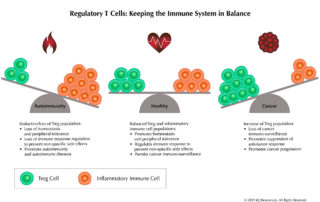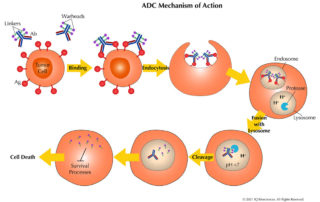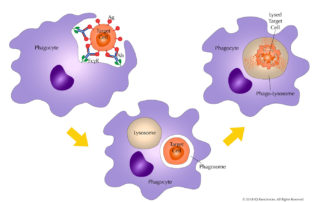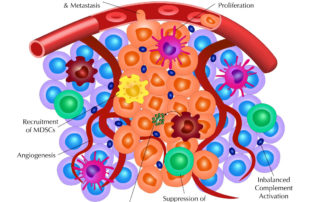The Suppressive Nature of Regulatory T Cells and Their Roles in Cancer and Diseases
Introduction to Regulatory T Cells The immune response is an exquisitely controlled event in which lymphocytes expand, secrete cytokines, and kill infected cells in response to foreign pathogens. At the peak of the immune response, extracellular organisms are eradicated through the humoral response, while intracellular pathogens are cleared by [...]
The ABCs of ADCs: An Introduction to Antibody-drug Conjugates
The terms “warhead” and “payload” typically invoke impressions of weapons and destruction. However, in a more constructive and positive light, these terms are now also commonly associated with antibody-drug conjugates (ADCs), a class of biologics used to treat cancer. These warheads and cytotoxic payloads are an integral part of [...]
ADCP: The Covert MoA for Therapeutic Antibodies You Need to Know About (Part 2)
In our previous blog, we discussed antibody-dependent cellular phagocytosis (ADCP), a mechanism of action for therapeutic antibodies that is becoming increasingly appreciated. In vitro and in vivo experiments show that ADCP, a process where phagocytic cells ingest and lyse opsonized target cells, can clear lymphoma cells in the [...]
ADCP: The Covert MoA for Therapeutic Antibodies You Need to Know About (Part 1)
Therapeutic antibodies can work through various mechanisms of action. They can inhibit ligand-independent dimerization to prevent downstream survival and proliferation signaling pathways or induce apoptosis of target cells. In addition, therapeutic antibodies can activate the immune system to drive antibody-dependent cellular cytotoxicity (ADCC) or complement-dependent cytotoxicity (CDC) to [...]
Revisiting Complement, An Old Friend… (Part 3)
After summarizing how the complement system can have both anti-tumor and pro-tumor effects, we conclude our blog series on Reis et al. by discussing the clinical aspects of complement as a target and biomarker. As discussed in the previous blogs, the imbalance in activation of complement leads to [...]
Revisiting Complement, An Old Friend… (Part 2)
Complement in promotion of tumorigenesis. The imbalance and dysfunction of complement activity and activation can lead to various mechanisms that promote tumorigenesis. These mechanisms can have affects on the immune cells to provide a more favorable tumor growth environment, including: 1) recruitment of MDSCs, 2) suppression of effector T [...]




